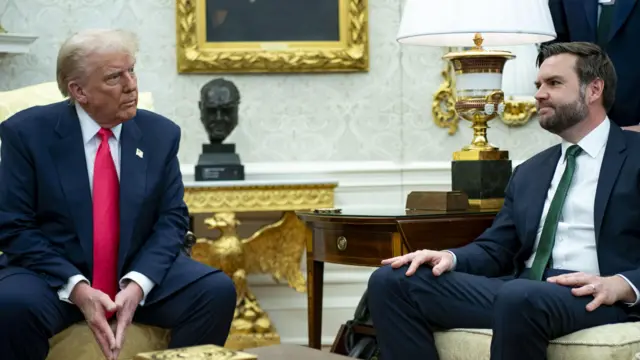
Group chat gives near-real-time insight into Trump's inner circlepublished at 20:20 GMT 24 March
 Anthony Zurcher
Anthony Zurcher
North America correspondent
 Image source, EPA
Image source, EPAJD Vance was the highest-ranking Trump administration participant in the Signal text group that discussed detailed plans about the recent US military strike on Yemen.
While the vice-president has typically marched in lockstep with President Donald Trump in his public comments on foreign policy, in the private discussions he said that he thought the administration was making a “mistake” by taking military action.
He noted that the targeted Houthi forces posed a larger threat to European shipping, while the danger to American trade was minimal.“I am not sure the president is aware how inconsistent this is with his message on Europe right now,” Vance wrote, according to Atlantic Editor-in-Chief Jeffrey Goldberg.
“There’s a further risk that we see moderate to sever spike in oil prices.” The vice-president went on to say that he would support what the team decided and “keep these concerns to myself”.
“But there is a strong argument for delaying this a month, doing the messaging work on why this matters, seeing where the economy is, etc."
This is far from the first time a vice-president has disagreed with their president on matters of foreign policy. George W Bush clashed with Dick Cheney in the later years of his presidency over handling of the Iraq War, and Joe Biden believed that Barack Obama’s covert operation to kill Osama bin Laden was too risky.
This group chat, however, has provided some near-real-time insight into the inner dynamics of Trump’s top national security advisors.
